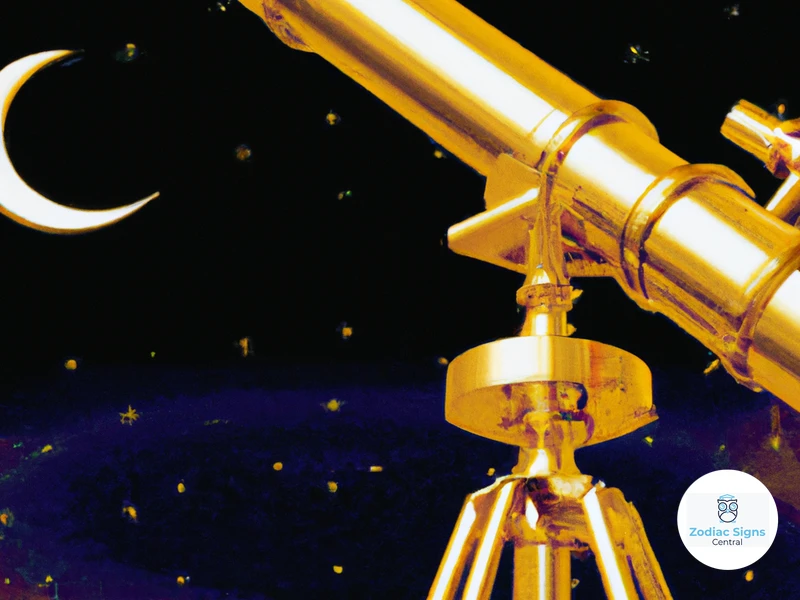The legacy of ancient Arab astrologers has left an indelible mark on the field of astrology, influencing techniques, and shaping astrological traditions. These wise and visionary scholars made significant contributions to the development and preservation of astrology, and their work continues to be celebrated and studied to this day. From their innovative astrological techniques to their influence on Western astrology, the Arab astrologers have played a vital role in shaping the way we understand and practice astrology. In this article, we will explore the fascinating contributions of ancient Arab astrologers and their lasting impact on astrological traditions.
Contributions of Ancient Arab Astrologers

The ancient Arab astrologers made significant contributions to the field of astrology, advancing its techniques and leaving a lasting impact on astrological traditions. They were pioneers in the development of astrological techniques, introducing new concepts such as planetary dignities, the use of house systems, and the importance of aspects in interpreting astrological charts. These techniques revolutionized the practice of astrology and laid the foundation for modern astrological methodologies. Additionally, the Arab astrologers played a crucial role in the preservation and translation of classical astrological texts from Greek and Roman sources, ensuring that the wisdom of ancient astrologers was not lost to history. Their meticulous translations and annotations allowed for the dissemination of astrological knowledge throughout the Arab world and ultimately influenced the development of Western astrology.
Influenced by Greek and Persian astrology, the Arab astrologers added their own insights and interpretations, contributing to the expansion and enrichment of astrological knowledge. Their meticulous observations and writing on the movements of celestial bodies, planetary cycles, and predictive techniques greatly advanced astrological understanding. As a result, their works, such as the Almagest of Ptolemy and the Tetrabiblos of Claudius Ptolemy, became primary sources for later astrologers.
Through their dedication to the study of astrology and their passion for preserving and expanding astrological knowledge, the ancient Arab astrologers made invaluable contributions that continue to shape and influence astrological traditions to this day.
1. Development of Astrological Techniques
The ancient Arab astrologers played a pivotal role in the development of astrological techniques, revolutionizing the field and pushing its boundaries. They introduced groundbreaking concepts and methodologies that have become fundamental to the practice of astrology. One major contribution was the development of the concept of planetary dignities, which assigned specific planets rulership over certain signs of the zodiac. This concept provided astrologers with a more nuanced understanding of planetary influences and their interaction with different signs.
Another significant development by the Arab astrologers was the refinement and utilization of various house systems. They recognized that the positioning of planets in specific houses of a birth chart could provide valuable insights into different areas of a person’s life. The Arab astrologers popularized and expanded upon the concept of house systems, introducing variations such as the Equal House System and the Whole Sign House System.
In addition to planetary dignities and house systems, the Arab astrologers also emphasized the importance of aspects in interpreting astrological charts. Aspects, which refer to the angular relationships between planets, were given careful consideration by the Arab astrologers. They recognized that these relationships could significantly influence the expression of planetary energies. By studying and interpreting aspects, astrologers were able to gain deeper insights into the dynamics and potentials within a chart.
The development of these astrological techniques by the ancient Arab astrologers paved the way for a more sophisticated and nuanced approach to astrology. Their contributions laid the foundation for the astrological practices we see today, enabling astrologers to provide more accurate and insightful interpretations of birth charts and predictions about various life events. These techniques continue to shape the way astrologers analyze and interpret astrological charts in different contexts, whether it be for personal empowerment, understanding relationships, or exploring one’s ascendant house interpretation.
2. Influence on Western Astrology
The influence of ancient Arab astrologers on Western astrology cannot be overstated. Their rich contributions to the field had a profound impact on the development and evolution of astrology in the Western world. One of the significant ways in which Arab astrologers influenced Western astrology was through the translation and preservation of classical astrological texts. These Arabic translations brought the works of renowned astrologers such as Ptolemy and Dorotheus to the attention of Western scholars, who were then able to study and build upon this knowledge.
The Arab astrologers introduced new astrological techniques and concepts that were assimilated into Western astrology. For example, they refined and expanded the use of planetary dignities, which assigned specific qualities and strengths to planets based on their zodiacal placements. This system of dignities provided greater precision and depth to astrological interpretations, and it is still widely utilized in modern Western astrology.
In addition to technical innovations, the Arab astrologers influenced the philosophical and spiritual aspects of Western astrology. They incorporated elements of Islamic mysticism and metaphysics into astrological practice, encouraging a deeper understanding of the interconnectedness between the celestial and earthly realms. This integration of spiritual perspectives with astrological principles contributed to the holistic nature of Western astrology, paving the way for the exploration of astrology as a tool for personal empowerment and self-discovery.
The legacy of ancient Arab astrologers on Western astrology is evident in the continued use of Arabic terms and methods in astrological literature and practice. Concepts like the Arabic Parts, derived from the works of Abu Ma’shar al-Balkhi and Al-Kindi, are still widely utilized in contemporary astrology. The Arab astrologers’ influence on Western astrology helped shape it into a diverse and multifaceted discipline that incorporates elements from various cultural and historical traditions.
For a deeper understanding of how the legacy of ancient Arab astrologers continues to impact modern astrology, you can explore the article on astrology for personal empowerment, which delves into the transformative potential of astrology in unlocking one’s true abilities and potential.
3. Preservation of Classical Astrology
Ancient Arab astrologers played a pivotal role in the preservation of classical astrology, ensuring that the wisdom and knowledge of ancient astrologers were not lost to time. They recognized the value and significance of the Greek and Roman astrological texts and dedicated themselves to the painstaking task of translating and preserving these works. Through their efforts, texts such as the Almagest of Ptolemy and the Tetrabiblos of Claudius Ptolemy were introduced to the Arab world, where they were carefully studied, commented upon, and expanded upon by Arab scholars.
One of the most notable figures in the preservation of classical astrology was Al-Kindi, also known as the “Philosopher of the Arabs.” He was instrumental in translating numerous works into Arabic, including texts on astrology, mathematics, and philosophy. Al-Kindi not only translated the works of ancient astrologers, but he also wrote commentaries and added his own insights and interpretations. His efforts ensured that these crucial texts were accessible to future generations and laid the foundation for the continued study and development of astrology. The translations and commentaries made by Al-Kindi and other Arab astrologers bridged the gap between ancient Greek astrology and the astrological traditions of the Arab world.
In addition to translation and commentary, Arab astrologers also played a vital role in the preservation of classical astrology through their meticulous preservation of astrological techniques and concepts. They compiled vast collections of celestial observations, documented eclipse phenomena, and refined astrological calculations and charting methods. By ensuring the accuracy and preservation of these techniques, the ancient Arab astrologers not only safeguarded the knowledge of their predecessors but also expanded upon it and made significant advancements in astrological understanding.
The preservation of classical astrology by Arab astrologers set the stage for its subsequent transmission to the Western world and the development of medieval and Renaissance astrology. The works of Arab astrologers were translated into Latin during the medieval period, leading to a renewed interest in astrology throughout Europe. The knowledge preserved by the Arab astrologers became a foundation upon which subsequent astrologers built their theories, enabling the continued evolution and development of astrology as a practical and philosophical discipline.
To this day, the influence of these ancient Arab astrologers in the preservation of classical astrology can still be felt. Their dedication to the translation, commentary, and preservation of ancient texts paved the way for the continued study and practice of astrology, allowing future generations to benefit from the wisdom and insights of their predecessors. The work of these astrologers laid a solid foundation for modern astrologers to delve into the depths of astrological knowledge and further unlock the potential for personal empowerment and understanding.
/interpreting-uranus-transits-relationships/
Notable Arab Astrologers
The history of astrology is adorned with a rich tapestry of notable Arab astrologers who made significant contributions to the field. Their names and works have become synonymous with the advancement of astrological knowledge and the preservation of ancient wisdom. Here are a few of the most prominent Arab astrologers:
- Al-Kindi (Alkindus): Al-Kindi, also known as Alkindus, was a distinguished Arab philosopher and polymath who made substantial contributions to various fields, including astrology. He was one of the earliest Arab scholars to engage with Hellenistic astrology, and his works focused on the influence of celestial bodies on human affairs. Al-Kindi’s pioneering efforts in translating and interpreting Greek astrological texts laid the groundwork for future advancements in astrological knowledge.
- Al-Farabi: Al-Farabi, also known as Alpharabius, was a renowned Arab thinker and astrologer of the 9th century. He played a vital role in preserving and expanding astrological traditions, particularly the works of Aristotle and Ptolemy. Al-Farabi’s immense knowledge and intellectual prowess enabled him to bridge the gap between various intellectual traditions, integrating Greek and Persian astrology. His influential writings on astrology, along with his works in philosophy and music, continue to inspire scholars today.
- Al-Biruni: Al-Biruni was a gifted Persian polymath who lived during the 11th century and made notable contributions to the field of astrology. Known for his encyclopedic knowledge, Al-Biruni wrote extensively on astrology and astronomy. His works encompassed topics such as planetary movements, astrological techniques, and the interpretation of celestial phenomena. Al-Biruni’s contributions not only expanded the body of astrological knowledge but also influenced later scholars and contributed to the development of Western astrology.
These are just a few examples of the many Arab astrologers who left an indelible mark on the field. Their dedication to the study of astrology, translations of crucial texts, and innovative interpretations have played a vital role in shaping the astrological traditions that we know today. Their works serve as a testament to the enduring legacy of Arab astrologers.
Continuation of Arab Astrological Traditions

The traditions of Arab astrology have continued to thrive through the efforts of modern Arab astrologers, who have carried on the rich legacy left by their ancient counterparts. These astrologers have built upon the foundations laid by the ancient Arab astrologers and have expanded and adapted the knowledge for the modern era. With a deep understanding of both classical astrology and contemporary astrological techniques, modern Arab astrologers offer unique perspectives and insights into the cosmic influences at play. They utilize ancient wisdom in conjunction with innovative approaches, providing individuals with personalized astrological interpretations and guidance. The digital age has further facilitated the dissemination of Arab astrological traditions, with online platforms allowing for the accessibility of astrological services, discussions, and resources. As a result, a growing community of individuals interested in Arab astrology has emerged, fostering the continued growth and evolution of these age-old traditions. Whether it be through personal consultations, educational materials, or online communities, Arab astrologers ensure that the ancient wisdom is not lost and continues to be relevant and empowering in the lives of individuals seeking astrological guidance.
1. Modern Arab Astrologers
Modern Arab astrologers have built upon the foundations established by their ancient predecessors, blending traditional astrological techniques with contemporary insights. They have embraced advancements in technology and the digital age to reach a wider audience and share their astrological expertise. These astrologers continue to study and interpret celestial movements, planetary alignments, and astrological charts to provide guidance and predictions. They incorporate both traditional Arabic astrology and Western astrological methodologies, allowing for a unique synthesis of astrological knowledge.
One notable aspect of modern Arab astrology is the emphasis on the ascendant house interpretation. This plays a vital role in understanding an individual’s unique personality, characteristics, and life trajectory. The ascendant house, also known as the rising sign, represents the way an individual presents themselves to the world and how they approach life. Modern Arab astrologers delve deep into the nuances of the ascendant house and its connections to other celestial bodies, offering detailed and insightful interpretations. By understanding and analyzing the ascendant house, individuals can gain a deeper understanding of themselves, their relationships, and their life path.
These modern Arab astrologers have embraced the digital age, using various online platforms, social media, and websites to connect with a global audience. They offer personalized horoscope readings, astrology consultations, and even online courses to empower individuals with astrological knowledge. By utilizing technology, they have made astrology more accessible and readily available to people from all walks of life.
Modern Arab astrologers continue to carry forward the rich astrological traditions of their ancient counterparts. They combine the wisdom of the past with contemporary insights to provide guidance and predictions for the present and future. Their focus on the ascendant house interpretation and utilization of digital platforms have further expanded the reach and impact of Arab astrology in the modern world.
2. Arab Astrology in the Digital Age
Arab astrology has seamlessly adapted to the digital age, opening new avenues for practitioners and enthusiasts to explore and engage with this ancient tradition. The advent of technology and the internet has allowed for the widespread availability of astrological resources, including online platforms, mobile applications, and social media communities dedicated to Arab astrology. These digital platforms offer a multitude of resources, ranging from comprehensive horoscope interpretations to interactive birth chart generators. Astrologers and scholars have embraced the digital landscape, sharing their knowledge and insights through online articles, podcasts, and YouTube channels.
One notable aspect of Arab astrology in the digital age is the increased accessibility of astrological consultations. Through video conferencing, individuals from around the world now have the opportunity to connect with renowned Arab astrologers and seek personalized readings, gaining valuable insights into their lives and futures. This accessibility has not only created a global community of Arab astrology enthusiasts but has also allowed individuals to rediscover and embrace their cultural heritage.
The emergence of online forums and discussion groups has enabled the sharing of experiences and the exchange of knowledge among Arab astrology enthusiasts. These platforms provide opportunities for individuals to engage in stimulating conversations, learn from each other, and expand their understanding of Arab astrology. The digital age has truly fostered a vibrant and dynamic community, bringing together people with different backgrounds and experiences to explore the depths of Arab astrology.
As technology continues to advance, we can expect Arab astrology in the digital age to evolve even further. With artificial intelligence and machine learning, there is the potential for the development of sophisticated astrology apps and algorithms that can provide accurate astrological predictions and interpretations. Additionally, virtual reality may offer immersive experiences, allowing individuals to explore ancient astrological sites, attend virtual astrology conferences, and interact with virtual astrologers.
Arab astrology has embraced the digital age, offering a wealth of resources and opportunities for enthusiasts and practitioners alike. Through online platforms, social media communities, and digital consultations, individuals can now engage with Arab astrology in ways that were once unimaginable. As technology continues to advance, the future of Arab astrology in the digital age holds exciting possibilities for further exploration, collaboration, and innovation.
Would you like me to help you with anything else?
Conclusion
In conclusion, the legacy of ancient Arab astrologers in astrological traditions is undeniable. Their contributions have shaped the very foundation of astrology as we know it today. From their innovative techniques and advancements in astrological methodologies to their influence on Western astrology and the preservation of classical astrological texts, the Arab astrologers have left an indelible mark on the field. Their meticulous observations and translations ensured the continuity of astrological knowledge, allowing future generations to build upon their insights. Furthermore, their influence on Western astrology opened doors to new interpretations and perspectives. The works of ancient Arab astrologers serve as a testament to their brilliance and dedication to the study of the stars. As astrology continues to evolve in the modern age, the legacy of these ancient scholars persists, guiding and inspiring astrologers to unlock the profound wisdom and potential it holds for personal growth and empowerment. To delve deeper into the interpretations and significance of astrological aspects, visit our article on Ascendant House Interpretation.
Frequently Asked Questions

1. How did ancient Arab astrologers contribute to the development of astrology?
Ancient Arab astrologers made significant contributions to astrology by introducing innovative techniques like planetary dignities, house systems, and aspects. Their contributions revolutionized the practice of astrology and laid the foundation for modern astrological methodologies.
2. What role did Arab astrologers play in preserving classical astrology?
Arab astrologers played a crucial role in preserving classical astrology by translating and annotating ancient Greek and Roman astrological texts. Their meticulous efforts ensured that the wisdom of ancient astrologers was not lost to history, and their translations allowed for the dissemination of astrological knowledge throughout the Arab world.
3. How did Arab astrologers influence Western astrology?
Arab astrologers had a significant influence on Western astrology. Their translations and interpretations of ancient texts were widely circulated in Western Europe during the Renaissance, leading to a revival of interest in astrology. The insights and techniques introduced by Arab astrologers became integrated into Western astrological practices and contributed to its growth and development.
4. Who were some notable Arab astrologers?
Notable Arab astrologers include Al-Kindi, Al-Farabi, Al-Biruni, and Abu Ma’shar. These scholars made substantial contributions to astrology through their writings, research, and translations of key astrological texts.
5. Are there modern Arab astrologers carrying on the traditions?
Yes, there are modern Arab astrologers who continue to carry on the traditions of ancient Arab astrologers. They study and practice astrology, combining the knowledge passed down from their predecessors with contemporary insights and techniques.
6. How has Arab astrology evolved in the digital age?
In the digital age, Arab astrology has evolved through the use of technology. Modern Arab astrologers now have access to advanced software and online platforms that assist them in calculating charts, interpreting planetary movements, and connecting with a global community of astrology enthusiasts.
7. Can Arab astrology be used for personal empowerment?
Yes, Arab astrology, like any other form of astrology, can be used for personal empowerment. By understanding the energies and influences indicated in their birth chart, individuals can gain insight into their strengths, weaknesses, and potential life opportunities. This self-awareness can help them make informed choices and navigate life with a deeper sense of purpose.
8. How does Arab astrology interpret the impact of Uranus transits on relationships?
Arab astrology acknowledges Uranus as a planet associated with sudden change and revolution. In the context of relationships, Uranus transits may indicate unexpected shifts, breakthroughs, or disruptions that can lead to personal growth or the need for liberation. The specific interpretation may vary based on other astrological factors present in an individual’s chart.
9. What is the significance of the Ascendant house in Arab astrology?
In Arab astrology, the Ascendant house represents the individual’s outward persona, physical appearance, and the lens through which they interact with the world. It is believed to have a strong influence on a person’s personality and how they project themselves to others, making it an essential point of analysis in astrological interpretations.
10. How can the legacy of ancient Arab astrologers be celebrated today?
The legacy of ancient Arab astrologers can be celebrated today by studying and exploring their writings, rediscovering their techniques, and integrating their insights into modern astrological practices. By recognizing and acknowledging their contributions, we honor their invaluable impact on the field of astrology.
References
- The Astrological History of Masha’allah
- in medieval islamic society
- Did You Know? The Influence of Astrology on the Science …
Frequently Asked Questions

1. How did ancient Arab astrologers contribute to the development of astrological techniques?
Ancient Arab astrologers made significant contributions to astrological techniques by introducing concepts such as planetary dignities, aspects, and houses. They also developed sophisticated methods of chart interpretation and prediction.
2. What is the influence of ancient Arab astrologers on Western astrology?
Ancient Arab astrologers had a profound impact on Western astrology. They translated and preserved many classical astrological texts, reintroducing them to the Western world during the medieval period. They also developed unique methods and techniques that are still used today.
3. How did ancient Arab astrologers preserve classical astrology?
Ancient Arab astrologers played a crucial role in the preservation of classical astrology. They translated and transcribed numerous ancient texts, ensuring their survival through the ages. Without their efforts, much of the knowledge and wisdom of ancient astrologers may have been lost.
4. Who are some notable ancient Arab astrologers?
Some notable ancient Arab astrologers include Abu Ma’shar Al-Balkhi, Al-Kindi, and Al-Biruni. These scholars made significant contributions to the field of astrology through their writings and teachings.
5. Who are modern Arab astrologers?
Modern Arab astrologers are practitioners of astrology who are based in the Arab world and continue the tradition of studying and interpreting the celestial movements. Some notable modern Arab astrologers include Mona Abdel-Hady, Dr. Mohammad Abu Taha, and Professor Mona Mahmoud.
6. How has Arab astrology evolved in the digital age?
In the digital age, Arab astrology has embraced new technologies and platforms. Online astrology platforms and social media networks have made it easier for Arab astrologers to reach a wider audience and share their knowledge. They often provide horoscopes, personalized readings, and astrological consultations through digital channels.
7. What were the main beliefs and influences of ancient Arab astrologers?
Ancient Arab astrologers believed in the interconnectedness of celestial bodies and human experiences. They believed that the positions and movements of the stars and planets influenced events on Earth and could be used to gain insights into the future. Their work was influenced by both Greek and Persian astrological traditions.
8. How did ancient Arab astrologers contribute to the development of astronomy?
Ancient Arab astrologers made significant contributions to the development of astronomy. They refined astronomical instruments, improved observational techniques, and expanded knowledge of celestial bodies. Their observations and calculations laid the foundation for future advancements in the field.
9. How is Arab astrology different from Western astrology?
Arab astrology and Western astrology share common roots but have evolved differently over time. Arab astrology places a strong emphasis on lunar mansions, while Western astrology focuses more on the zodiac signs. Additionally, Arab astrology has its own unique interpretation techniques and methods of chart analysis.
10. Can ancient Arab astrological techniques still be applied in modern astrology?
Ancient Arab astrological techniques are still applicable in modern astrology. Many astrologers continue to study and utilize the methods developed by ancient Arab scholars. These techniques offer valuable insights and can be integrated with contemporary astrological practices.
References
- Astrology in the medieval Islamic world
- The Astrological History of Masha’allah
- Did You Know? The Influence of Astrology on the Science …






